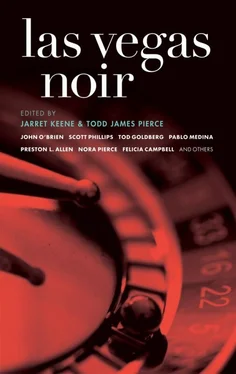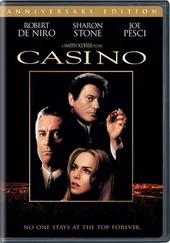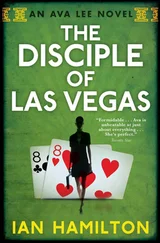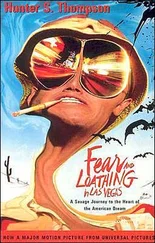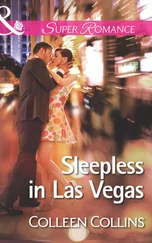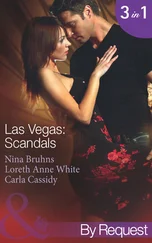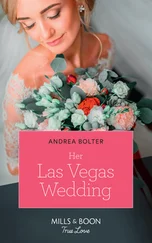He didn’t say anything at first. He glanced toward the dark hallway to my left and then returned his scowl back on me. “I told you,” he growled, but then lowered his voice. He didn’t want to wake her. “Take my car. My wallet. Take anything you want and go.”
“I tell you what,” I said. “I’m gonna let you go. Walk out the door. Call for help if you want. You’re free to leave.”
“What?” He lowered his hands a bit.
“Go.”
“What wrong with you?”
“I’m giving you a chance to leave without me shooting your face in. If no one’s here, then you have nothing to worry about.”
He just glowered at me. Then his hands fell. “Who are you?” he said in a thick voice. “What you want?”
I took a step closer to him, and he slowly put up his hands again without adjusting his glare on me.
“Last chance,” I said.
“I not going anywhere.”
I could still see fear in his eyes, but there was an angry calm in his demeanor now, in the flimsy way he held up his hands like I was an annoying child with a toy gun. I decided to believe everything his son had told me, and it filled me with both disappointment and relief, and then suddenly a heavy decisive sadness, like I no longer recognized that shrimp paste smell in the air or any of the outlandish flowers in this strange house — like a stone door had just closed on the last fifteen years of my life.
I edged closer but he did not budge. When my gun was finally within a foot of his face, I said, “Okay then,” and struck him across the cheek with it. He staggered back and threw up a hand to shield himself.
I backed away. With his hand on his cheek, he watched me move toward the front door. I glanced at the hallway, at the doors in the darkness, wondering which room was their bedroom, which room might she be sleeping in, which door might she be standing behind right now, cupping her ear to the wood, holding her breath. I took a last look back at Sonny. His cheek was bleeding, his eyes dark and wide. How many more times would he save her like tonight?
I turned and ran out into the rain, stumbling across the gushing lawn, through the surging water in the street, toward my car. My engine roared to life. As I drove frantically past the house, I glimpsed Sonny standing on their front porch with his arms at his side, watching me speed away. I could have sworn I saw a darker, slimmer figure looming behind him.
I drove like a maniac for a few miles, cars honking at me as I passed them one by one. Then I slowed down. I turned on the radio. I reentered the highway. My body felt cool and the rain was soothing on the roof of the car. I turned off the radio and let the droning rain fill my ears. The night was like a tunnel. I drove a steady clip down the highway, promising myself that I would never again return to this or any desert.
Bennie Rojas and the rough riders
by Pablo Medina
West Las Vegas
The morning Bennie Rojas boarded the plane for Las Vegas, he was convinced he’d just gotten a new lease on life. Cuba, that small island rocked by politics and hurricanes, was already beginning to fade into the past and all his troubles were but flickering specks in a distant black sky. In the seat to Bennie’s right was one of the cooks from the Tropicana, the grandest nightclub in the world. To the left was a taciturn man with a scar that ran from his ear to his chin. He’d gotten on board in Miami, where the plane stopped on its way west, and had said nothing for four and a half hours. Naturally, Bennie assumed he did not speak any Spanish. Tough guys, Bennie thought. There’s nothing you can do about them. And so he spent the whole trip talking to the cook, a fellow from Matanzas with a pencil-thin mustache and a head the shape of an eggplant. His name was Orlando Leyva.
They promised me a job, Orlando said nervously. Rivulets of sweat ran down his face and moistened his collar. He was a man given to perspiring and every time the plane hit an air pocket more sweat poured out of him.
They promised me a job too, Bennie said. I’m not worried. I’m told Lansky is a man of his word.
Unless he isn’t.
Unless he isn’t, Bennie had to admit. If it weren’t for politics, Havana would be paradise. Maybe Las Vegas is paradise.
Las Vegas is in the desert.
Where do you think the Garden of Eden was located, chico , in the Caribbean?
Waiting for his bags in the claim area, it occurred to Bennie that Vegas was definitely not paradise but it sure was better than being unemployed in Havana living with a wife he couldn’t stand. Besides, the revolutionaries considered all casino employees to be part of a vast conspiracy of corruption: worms feeding on the dung heap of capitalism. It was only a matter of time before they came after Bennie and put him in one of their decrepit jails.
But Bennie was an honest man. Not once during his ten-year career as a twenty-one dealer did he skim, not once did he pass chips or take a hit or sell a customer short. And he didn’t get involved in politics or union business. All those complaints about unfair business practices and worker exploitation were not for him. He knew his bosses were not the most honest people in the world, but that wasn’t his concern. He did his job, put his time in, had a Cuba libre (a mentirita , people were calling them lately) with the other dealers after his shift, and went home to his hysterical wife, whom he referred to as Juana la Loca. No one had anything on him, except that, in this particular case, he was on the wrong side of the fence.
For a while after Fidel took over the casinos remained open and Bennie went to work as usual. There were still American tourists coming to Cuba, suckers willing to have their money taken while they drank themselves silly on daiquirís . Bennie’s job was to be a card dealer, not a priest. He’d see the Americanos at the table with a couple of gorgeous Cuban redheads wrapped around them and say to himself, Man, if I only had the money, I’d be right there next to them. Then one day two men came around asking if anyone wanted to go work in Las Vegas.
Las Vegas? Where the hell is that? Bennie asked. In the middle of nowhere, one of the guys said. But soon it’s going to be the next Havana. You schmucks want to stay here and rot? Schmuck was an English word Bennie had never heard. The guy doing the talking kept straightening his tie as he spoke. He looked like a movie gangster except that he was very young, maybe twenty years old, and he spoke in a reedy falsetto.
I have a wife, Bennie started to say, then he remembered he hated his wife. This was a perfect opportunity to escape the clutches of his lousy marriage, to escape all he sensed was coming to the island.
Six other dealers volunteered that day as well as eight cooks, twenty showgirls, and an unknown number of musicians. Two weeks later Bennie was at the Las Vegas airport, waiting for his bags and making small talk with Orlando and three of his culinary colleagues. The taciturn man with the scar led the five of them to a Ford station wagon and drove them to a motel off Rancho Drive. It was mid-July and the heat rose from the asphalt, turning the station wagon into a pressure cooker. The heat of Havana was nothing compared to this. Bennie mentioned his discomfort to the cooks but they, used to the infernal atmosphere of commercial kitchens, thought nothing of it. Paradise indeed.
Another man met them at the motel and gave each of them a room key. Bennie’s was number 207.
Good number to play, he said to Orlando. Number two is butterfly. Number seven is seashell.
Читать дальше
